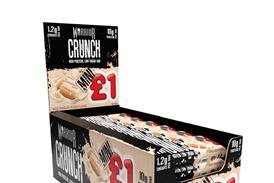Ask for a carrier bag at my local Spar store and it will cost you 10p. There's a notice on the till to that effect. I recently saw a chap who bought a week's worth of groceries pay for two bags quite happily.
It's a different story to that of a few months ago when the charge was first introduced. There was quite a bit of consumer opposition, and the local paper even carried a letter of complaint.
However, a few months later and shoppers have got used to the system. Most are happy to bring bags with them, or pay accordingly.
Meanwhile, less than half a mile away, a busy independent offering everything from Western Union to lots of value lines is giving bags away free.
From an environmental viewpoint, the local Spar is to be admired. But the independent understands the micro-economics and customer profile of his location, and acts accordingly. Both are right.
Whether you're unaffiliated or a symbol, your trading style is influenced in one way or another by your wholesaler.
As the squeeze on spending intensifies, wholesalers are looking to suppliers for a bigger share of big brand price promotions.
A leading snack brand recently took a step in the right direction by dropping bogof deals to concentrate instead on price points. And judging by window bills, many wholesalers are following suit.
A major wine supplier to the independent sector is now successfully marketing wine brands with reasonably high price points, which are still seen to be offering 'good value' by local shoppers.
The meaning of the word value is also changing. An £8 bottle of wine bought to be sipped on a night in might not be cheap in the traditional sense of the word, but it's still better value than paying £16 for the same bottle in a restaurant.
It's a different story to that of a few months ago when the charge was first introduced. There was quite a bit of consumer opposition, and the local paper even carried a letter of complaint.
However, a few months later and shoppers have got used to the system. Most are happy to bring bags with them, or pay accordingly.
Meanwhile, less than half a mile away, a busy independent offering everything from Western Union to lots of value lines is giving bags away free.
From an environmental viewpoint, the local Spar is to be admired. But the independent understands the micro-economics and customer profile of his location, and acts accordingly. Both are right.
Whether you're unaffiliated or a symbol, your trading style is influenced in one way or another by your wholesaler.
As the squeeze on spending intensifies, wholesalers are looking to suppliers for a bigger share of big brand price promotions.
A leading snack brand recently took a step in the right direction by dropping bogof deals to concentrate instead on price points. And judging by window bills, many wholesalers are following suit.
A major wine supplier to the independent sector is now successfully marketing wine brands with reasonably high price points, which are still seen to be offering 'good value' by local shoppers.
The meaning of the word value is also changing. An £8 bottle of wine bought to be sipped on a night in might not be cheap in the traditional sense of the word, but it's still better value than paying £16 for the same bottle in a restaurant.















No comments yet